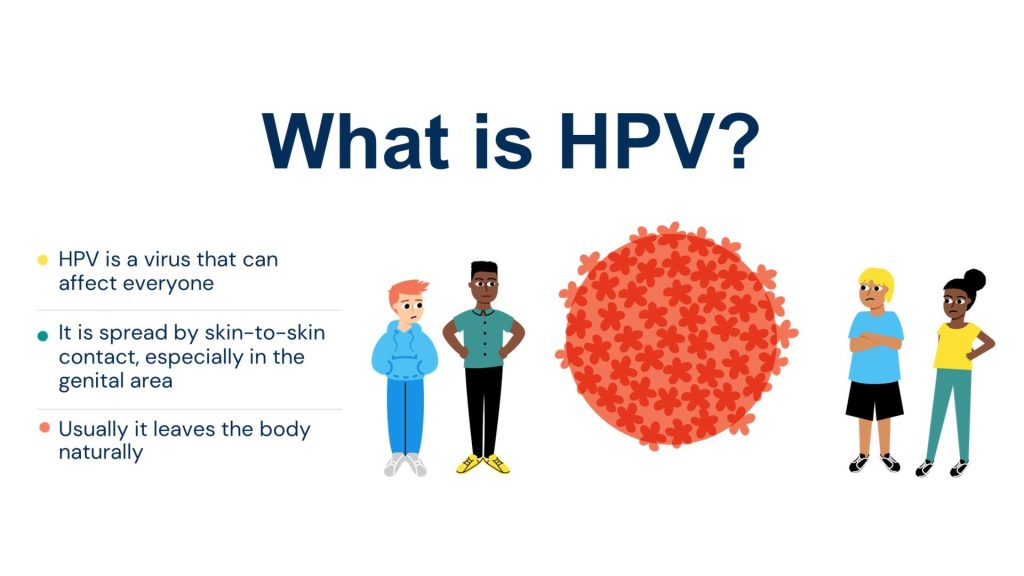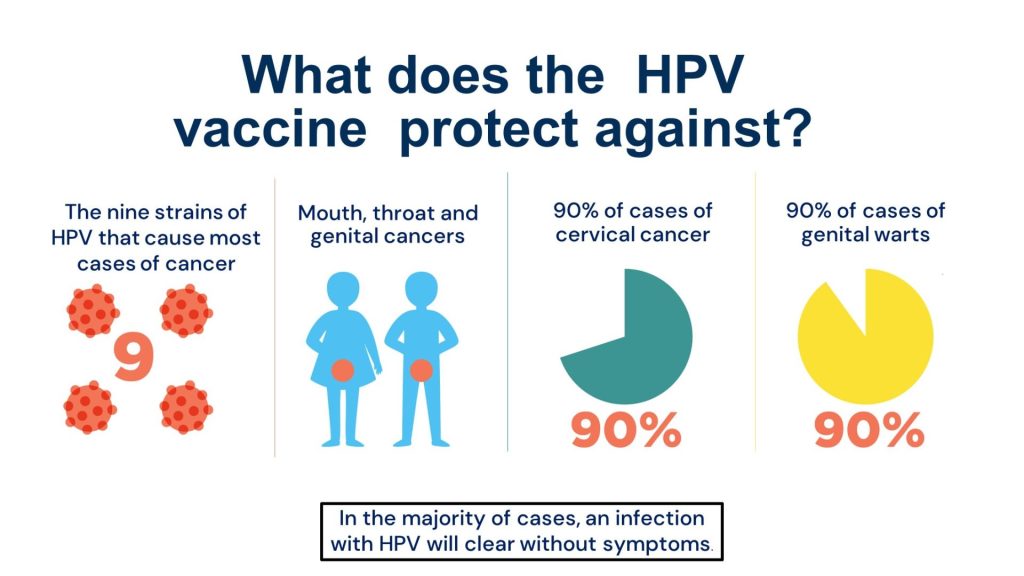2 February 2023
A lesson to help teenagers find out about the human papillomavirus (HPV) vaccine in schools has been awarded the Personal, Social, Health and Economic (PSHE) Association quality mark. HPV is a common infection that is spread by skin-to-skin contact, including sexual contact. Since the pandemic there has been a decline in the uptake of the HPV vaccine – down nationally from 86% to 69%. (UKRI).

EDUCATE, co-produced by young people and researchers from the University of Bristol and London School of Hygiene and Tropical Medicine, will help professionals inform Key Stage 3 students about the HPV vaccine and provide reassurance about receiving the vaccine — which is usually offered to teenagers at school as part of the national vaccination programme.
The vaccine helps prevent infection with the strains of HPV that are responsible for causing the majority of HPV-related cancers in both women and men. These include cancers affecting the cervix, vulva, vagina, penis, anus, mouth and throat. The HPV vaccine also provides protection against genital warts.

The EDUCATE lesson will be most useful for Year 8 students before they are offered the HPV vaccine. However, other young people may also benefit from having the opportunity to find out more about the process.
The resources for the EDUCATE lesson include films and exercises to assist learning, along with supporting the delivery of the HPV vaccination programme by providing young people with information and answering questions they may have. It prepares them to be vaccinated at school and helps them make the decision to be vaccinated or not. It is designed to be delivered before the school-based HPV vaccination session begins and can be delivered by different professionals, including teachers and immunisation nurses.
As well as covering key learning opportunities from the ‘Health and Wellbeing’ section of the Programme of Study, the lesson pack also covers the statutory Health Education requirements to ensure students know ‘about personal hygiene, germs including bacteria, viruses, how they are spread, treatment and prevention of infection, and ‘about antibiotics and the facts and science relating to immunisation and vaccination’.
Dr Harri Fisher, Research Fellow in Bristol Medical School: Population Health Sciences (PHS) and National Institute for Health and Care Research (NIHR) Health Protection Research Unit [HPRU] in Behavioural Science and Evaluation at the University of Bristol, said:
“Our previous research has shown that some young people have unmet information needs about the HPV vaccine. We hope the lesson and materials we developed will help create a safe space for young people to ask questions about the HPV vaccine and what to expect during the vaccination process. This is especially important since the HPV vaccine is now offered to young men as well as young women.”
Jasmine John, Subject Specialist at PSHE Association, added:
“The EDUCATE lesson pack will be extremely useful in PSHE classrooms, helping young people to understand why the HPV vaccine is so important, and to manage any worries or concerns about the vaccine. Throughout the lesson, students will have the opportunity to ask any questions that they may have about the vaccine and receive answers that are informed by up-to-date research. The lesson pack is full of information and engaging activities to help boost the confidence of students and teachers alike.”
In England, young people aged 12 to 13 years are offered immunisation against HPV as part of the NHS vaccination programme. Research has shown that in England cervical cancer has almost been eliminated among young women who were offered the HPV vaccine. The programme has also been shown to be good value for money for the NHS.
Further information
About PSHE Association
PSHE Association are the national body for PSHE education
A membership association and charity, we support over 50,000 teachers and schools with resources, training, guidance and advice.
Our mission is to raise the status, quality and impact of PSHE education so that all children and young people benefit. And we’ve enjoyed success in this area – our campaigning helped make Relationships Education, RSE and Health Education (RSHE) compulsory in September 2020.
Our Subject Specialist team create all of our resources, training and guidance. This includes the Programme of Study for PSHE Education, which most schools use to structure PSHE education.
About the NIHR
The National Institute for Health Research (NIHR) is the nation’s largest funder of health and care research. The NIHR:
- funds, supports and delivers high quality research that benefits the NHS, public health and social care
- engages and involves patients, carers and the public in order to improve the reach, quality and impact of research
- attracts, trains and supports the best researchers to tackle the complex health and care challenges of the future
- invests in world-class infrastructure and a skilled delivery workforce to translate discoveries into improved treatments and services
- partners with other public funders, charities and industry to maximise the value of research to patients and the economy.
The NIHR was established in 2006 to improve the health and wealth of the nation through research, and is funded by the Department of Health and Social Care. In addition to its national role, the NIHR supports applied health research for the direct and primary benefit of people in low- and middle-income countries, using UK aid from the UK government.